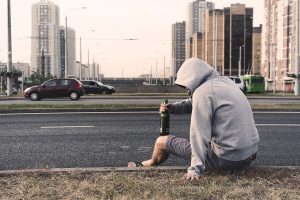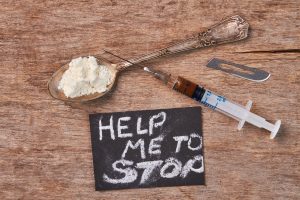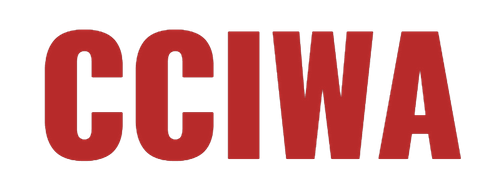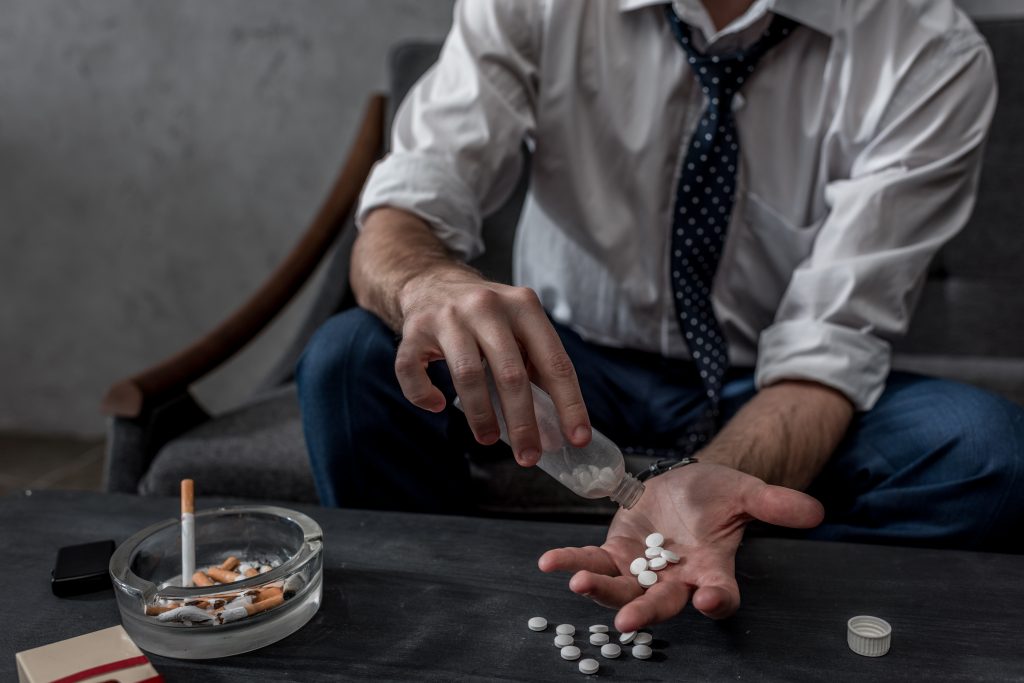Did you know that depression can increase your risk of chronic health problems, including drug abuse?
When depressed, an individual can be tempted to alleviate depressive symptoms by taking alcohol or drugs. About a third of those with clinical depression use drugs to relieve despair, hopelessness, and low self-esteem.
Unfortunately, these drugs can be addictive. The more someone uses drugs, the more reliant their body becomes on their effects. In this sense, depression and drug abuse are mutually reinforcing, with one condition frequently deteriorating the other.
This post is for you if you are struggling with depression and drug use disorder. Read on to understand the link between depression and drug abuse and available treatment options.
The Link Between Depression and Drug Abuse
So, what is the link between depression and drug abuse?
If you have depression, you may find yourself using drugs to cope with or ease symptoms of depression. This is called self-medicating.
Research shows that persons with depression are twice likely to self-medicate with alcohol than with drugs. People self-medicate for various reasons, including:
- Managing unpleasant emotions: The constant sadness, loneliness, or anger can be draining. For some people, taking drugs helps them unwind, take their minds off their misery, or “numb” their pain.
- Lifting mood: Even when positive things happen in your life, depression can make it challenging to be happy or satisfied. Some people feel that using drugs is the only way to be happy.
- Sleeping: Depression often causes insomnia. Some individuals use sedatives to fall asleep.
- Boosting energy: Depression frequently depletes energy, partly because of lack of sleep. Some use stimulants to remain alert.

Indeed, drugs can temporarily ease your symptoms. However, they cannot manage those symptoms completely or treat the underlying condition.
That means your depression symptoms will return when you stop using the drugs. Even worse, you might eventually develop tolerance if you continue using drugs to achieve the same effect.
With time, you might become dependent on the drug, increasing your risk of addiction. It is crucial to get an early diagnosis when you notice symptoms of depression to lower your risk of developing a drug use disorder.
Most Common Types of Depression
Major depression
Major depression is among the most common form of depression. It affects about 7% of the country’s population at any given time.
Symptoms of major depression include a loss of energy, anger, intense sadness, and changes in sleep patterns, which typically linger for two weeks or more.
Major depression may recur throughout a person’s life if left untreated.
Dysthymia
Dysthymia is a mild type of depression. People with this condition experience a persistent “gloomy mood” for at least one to two years.
In the short term, drug abuse could disguise these troubling emotions, but over time, it can severely compromise a person’s relationships, career, and everyday life.
Dysthymia is a chronic disorder that might eventually result in major depression.
Seasonal affective disorder
Seasonal Affective Disorder (SAD) is a form of depression linked with changes in light; it typically manifests in the winter.
Individuals with SAD may experience mood swings, anxiety, binge eating, and difficulty sleeping. One must present these symptoms for at least three consecutive winters to be diagnosed with SAD.
Atypical depression
A person with atypical depression presents depressive symptoms, but their mood changes for the better upon hearing about a positive development.

But during their “low” periods, depression can get so bad that they feel like life isn’t worth living. Self-medicating atypical depression with addictive drugs may have adverse emotional and behavioral effects.
Symptoms of Depression
Symptoms of depression differ based on the type. Drug abuse co-occurring with this condition could make these symptoms worse.
According to the National Institute of Health, individuals with depression have a 10% lifetime risk of suicide. When combined with drug abuse, this risk of suicide increases to around 25%.
Common symptoms of depression
- Irritability
- Feelings of hopelessness and pessimism
- Loss of interest in hobbies, work, and personal goals
- Sleeping difficulties
- Trouble concentrating
- Changes in appetite and weight
Individuals with depression may experience any of these common symptoms at some point. However, the symptoms can be risky or even fatal for those with severe depression.
Symptoms of severe depression
- Suicidal thoughts
- Delusions or hallucinations
- Reckless behavior
- Using alcohol or drugs as a coping mechanism
It is advisable to seek medical help immediately if you experience any signs of depression.
Diagnosing Depression
Medical professionals can diagnose depression in various ways. A few tests could be conducted to determine the specific form of depression and provide appropriate treatment.
Physical exam
A physician performs a physical examination to determine whether any underlying medical issues could be connected to a patient’s depression.
The exam may involve several physical tests to understand a person’s general health accurately.
Laboratory tests
Blood tests can rule out numerous underlying medical disorders causing depressive symptoms. For instance, a thyroid test or complete blood count will ascertain that different body parts are functioning well.
Psychological evaluation
Physicians or mental health specialists may ask patients to fill out a questionnaire better to understand their symptoms, feelings, and thoughts.

The information obtained in this evaluation helps physicians make accurate diagnoses and determine the appropriate treatment.
DSM-5
Mental health professionals frequently use the Diagnostic and Statistical Manual of Mental Disorders (DSM-5) for guidance.
Medical professionals use this manual’s diagnostic criteria to diagnose mental disorders, while insurance providers use it to pay for treatments linked with a condition.
Risks of Dual Diagnosis
Data from the National Institute of Drug Abuse show that individuals with a mood disorder are twice as likely to develop a drug use disorder than their counterparts without a mood disorder.
When one suffers from both a mood disorder and a drug use disorder, they are said to have a dual diagnosis. Unfortunately, individuals with a dual diagnosis experience more challenges than those with a single diagnosis.
They tend to:
- Have more severe depression symptoms
- Have a lower quality of life
- Relapse when trying to quit drugs
- Attempt suicide
A 2013 longitudinal study involving 816 subjects found that the order or diagnosis affects suicide risk. Most individuals who experienced both conditions together developed depression first.

About a third of this cohort admitted having attempted suicide at least once. The rates of attempted suicide in this cohort were as follows:
- Twice as high as they were for those who first experienced depression before alcohol use disorder
- Three times higher than they were for those who only experienced depression
- Nine times higher compared to those who only had alcohol use disorder.
The researchers hypothesize that this group may have experienced more severe and chronic depression than others. Still, they could not determine why this group had a higher rate of suicide attempts.
Getting Help for Dual Diagnosis
Generally, dual diagnosis treatment resolves both conditions simultaneously. In other words, you don’t have to stop using drugs to get treatment for depression.
Similarly, you don’t have to wait for your depression to improve before seeking help for your drug use.
A therapist or qualified professional can suggest a treatment plan incorporating medication, counseling, and support groups.
Medication
Medication can treat the physiological causes of depression and drug abuse. Antidepressants can help balance the neurotransmitters implicated in depression.
Although they don’t directly address symptoms of drug abuse, they may still indirectly help by easing the depressive symptoms that fuel the need to use drugs.
Besides, medication can help lessen cravings and withdrawal symptoms if you have a drug use disorder.
Drug use disorder medications include:
- Buprenorphine
- Disulfiram
- Naltrexone
- Methadone
- Acamprosate

While it is possible to use antidepressants concurrently with these medications, it is crucial to note that some medicines should not be taken together.
For example, methadone and antidepressant sertraline can increase serotonin levels. Combined, they can increase your serotonin to dangerous levels and cause serotonin syndrome.
A physician or psychiatrist can give you more information about your treatment options.
Psychotherapy
Therapy helps treat the social and emotional causes of your depression. Some treatment options for dual diagnosis are:
- Cognitive behavioral therapy (CBT): CBT helps address delusional thoughts and harmful behavior contributing to depression and drug abuse.
- Motivational interviewing: This strategy can assist you in resolving conflicting emotions related to drug use or self-destructive behaviors.
- Dialectical behavioral therapy (DBT): This approach can help you discover and practice new strategies for regulating emotional distress and effectively managing depressive, cravings, and withdrawal symptoms.
Support group
If you cannot afford therapy or are not ready to engage with a professional, consider joining a support group. You can even couple individual therapy with a support group.
Support groups offer a venue for individuals with similar problems and mental disorder symptoms to connect and support each other. Members can advise, comfort each other and celebrate victories.

If you have a dual diagnosis, you could look into the following:
- Alcoholics Anonymous
- SMART Recovery
- Double Trouble in Recovery, a support group specifically for those with dual diagnosis
If you don’t have access to medical care, you don’t need to deal with depression and drug abuse symptoms alone.
Get Help for A Dual Diagnosis
The link between depression and drug abuse is that these conditions usually co-occur. Drug abuse causes depression sometimes, but depression can also lead to drug abuse.
Regardless of which condition manifested first, the gold standard for dual diagnosis therapy simultaneously treats all symptoms and problems.
The most important thing is to seek professional help. At CCIWA, we can connect you to the right people.
We partner with qualified and experienced mental health professionals who can walk with you in your recovery journey.
Contact us at 888-217-1376 for a free consultation today.



